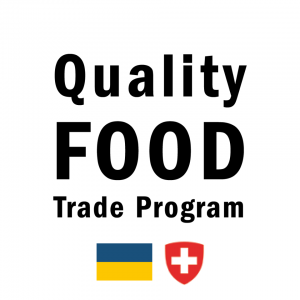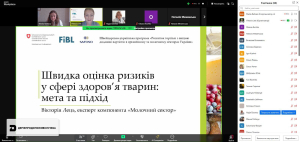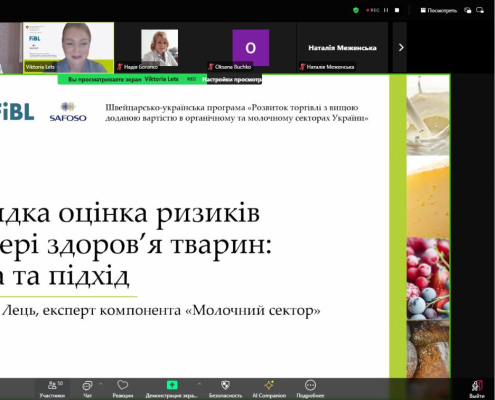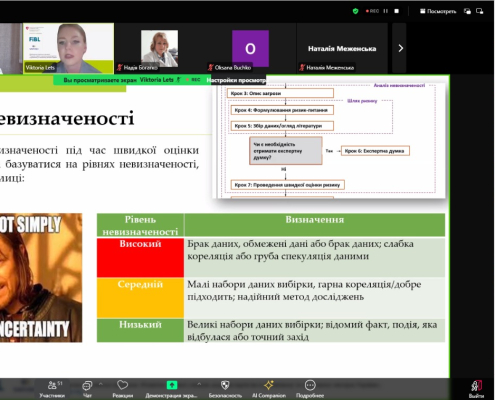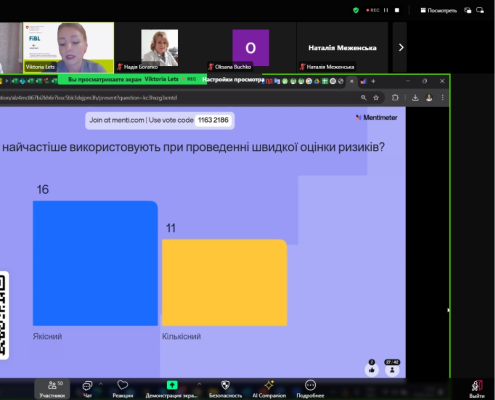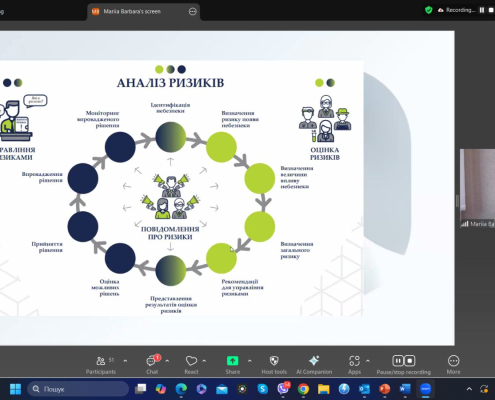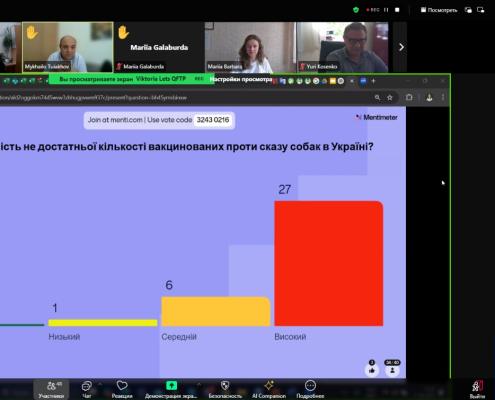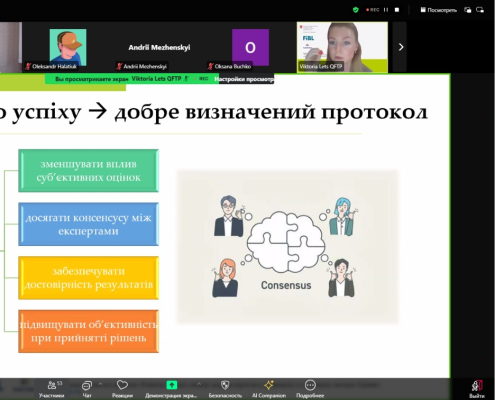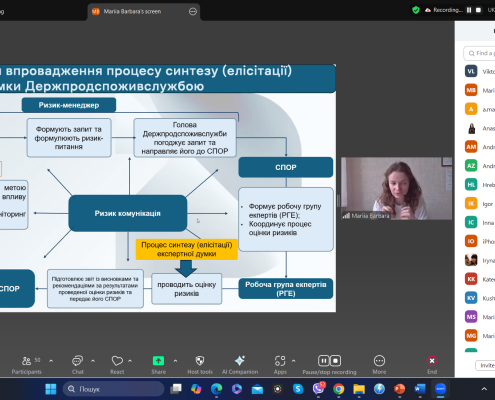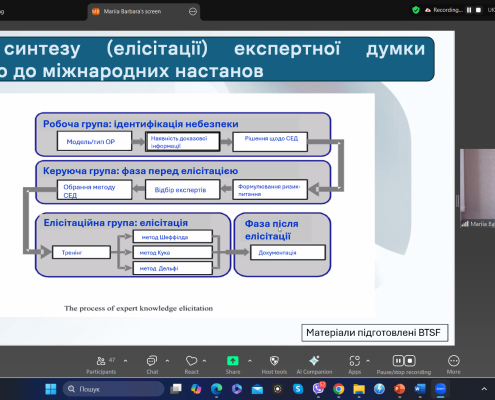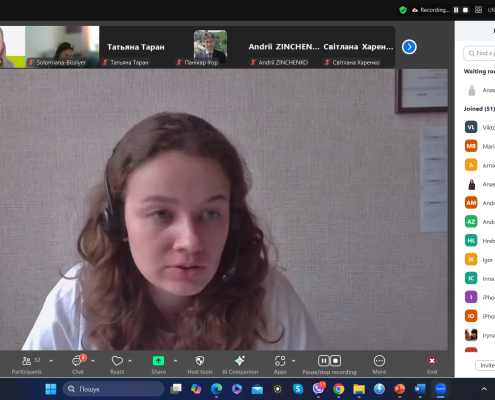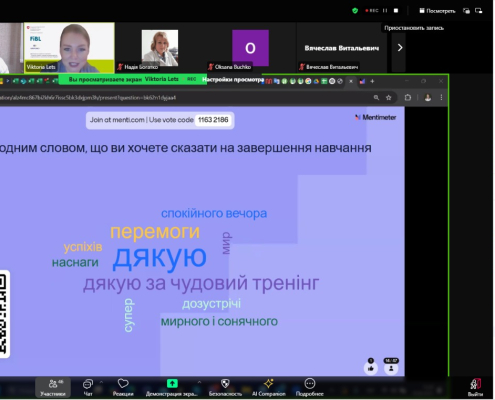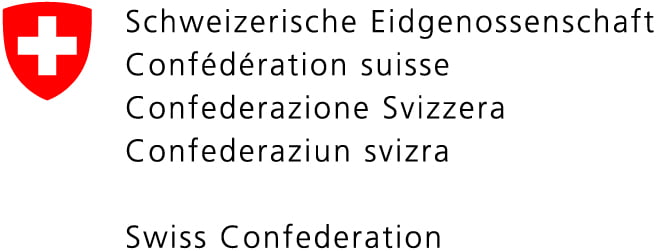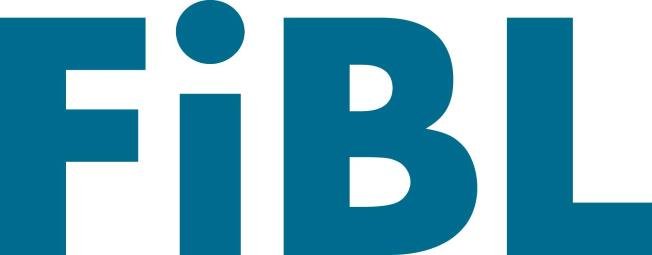The SSUFSCP Conducted Training Sessions on Risk Assessment
Risk assessment receives special attention during the official screening of the compliance of Ukrainian legislation with EU acquis under the negotiated Chapter 12 “Food Safety, Veterinary and Phytosanitary Policy.” In particular, the current state of implementation of this activity in Ukraine and its alignment with European requirements are being assessed. Moreover, the European Commission evaluates not only the number of risk assessments conducted, but also the level of involvement of scientific experts in the process, their independence, and the number of training activities organized to enhance their capacity to carry out scientifically based risk assessments in accordance with international standards.
Experts of the the Swiss-Ukrainian Programme “Higher Value Added Trade from the Organic and Dairy Sector in Ukraine” (hereinafter – QFTP) continue to support the State Service of Ukraine on Food Safety and Consumer Protection (hereinafter – SSUFSCP) in the development and implementation of risk assessment activities, in particular, two online trainings on “Methodology for Expert Knowledge Elicitation*” and “Rapid Risk Assessment in the Field of Animal Health**” were held on 17 and 18 May 2025.
The events were attended by more than 50 participants, including experts from Scientific Expert Groups on Risk Assessment (SEGRAs), representatives of the head office of the SSUFSCP, research institutes subordinate to the SSUFSCP, and other experts from scientific and educational institutions with which the SSUFSCP has signed Memorandums of cooperation in risk assessment.
During the online training “Methodology of Expert Knowledge Elicitation”, the following was done:
- the participants were introduced to the purpose and key aspects of the elicitation of expert knowledge,
- explained the various protocols for conducting the elicitation process in accordance with the European Food Safety Authority (EFSA) guidelines on the expert knowledge elicitation in the risk assessment of food and feed safety,
- practically worked out the elicitation process using special web tools and discussed the results during the discussion.
Within the framework of the online training “Rapid Risk Assessment in the Field of Animal Health”, participants gained knowledge on
- the difference between a classical qualitative risk assessment and a rapid risk assessment;
- the purpose and process of conducting a rapid risk assessment in cases of animal health threats, in particular, the aspects that should be taken into account at each step of this risk assessment.
The participants were also introduced to practical examples of rapid risk assessments in the field of animal health in order to assimilate the theoretical knowledge gained.
The training sessions were met with a high level of engagement and positive feedback. Participants highlighted the relevance of the topics covered and the the applicability of the presented techniques in various areas of professional activities. They also noted the high level of expertise of the involved specialists and the benefit of holding interactive sessions during both trainings, as this contributed to better absorption of the material.
Each participant who took part in the training and passed the final test will receive a certificate.
We thank everyone who joined the trainings and for the fruitful cooperation in implementing risk assessment activities in Ukraine!
For reference:
* Expert Knowledge Elicitation is the process of combining the knowledge, assessments and predictions of several experts in a particular field to arrive at a more complete, informed and reliable conclusion. In 2014, EFSA developed guidelines for the application of expert knowledge elicitation. According to the guidelines, there are three generally recognised approaches: the Sheffield method, the Cooke method and the Delphi method.
**Rapid risk assessment is a type of risk assessment that is carried out in cases where a result is needed within a very short period of time, using available data. Rapid risk assessment in the event of a potential animal health threat or emergency is the best tool to quickly inform risk managers of the likely impact of a threat to animal health and welfare and the most effective control measures they can take to address the identified risk. The Food and Agriculture Organisation of the United Nations (FAO) has developed guidelines for conducting rapid risk assessments in cases of animal health threats.
These trainings were supported by Switzerland within the framework of the Swiss-Ukrainian Programme “Higher Value Added Trade from the Organic and Dairy Sectors in Ukraine” (QFTP) implemented by the Research Institute of Organic Agriculture (FiBL, Switzerland) in partnership with SAFOSO AG (Switzerland), www.qftp.org.
